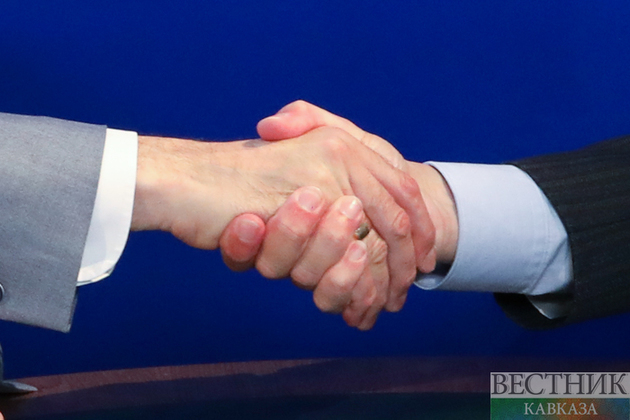Leaders of Russia, the United Kingdom, China, the United States and France have released a joint statement on preventing a nuclear war and avoiding arms races, according to the document published on the Kremlin website.
"The People’s Republic of China, the French Republic, the Russian Federation, the United Kingdom of Great Britain and Northern Ireland, and the United States of America consider the avoidance of war between Nuclear-Weapon States and the reduction of strategic risks as our foremost responsibilities," the joint statement says.
"We affirm that a nuclear war cannot be won and must never be fought," it reads.
Leaders of five nuclear powers pointed out that as nuclear use would have far-reaching consequences, they affirm that "nuclear weapons - for as long as they continue to exist - should serve defensive purposes, deter aggression, and prevent war."
"We believe strongly that the further spread of such weapons must be prevented," said the leaders of the nuclear powers and permanent members of the United Nations Security Council.
"We reaffirm the importance of addressing nuclear threats and emphasize the importance of preserving and complying with our bilateral and multilateral non-proliferation, disarmament, and arms control agreements and commitments," the document says.
In particular, the major nuclear powers "remain committed to our Nuclear Non-Proliferation Treaty (NPT) obligations, including our Article VI obligation ‘to pursue negotiations in good faith on effective measures relating to cessation of the nuclear arms race at an early date and to nuclear disarmament, and on a treaty on general and complete disarmament under strict and effective international control’."
"We each intend to maintain and further strengthen our national measures to prevent unauthorized or unintended use of nuclear weapons. We reiterate the validity of our previous statements on de-targeting, reaffirming that none of our nuclear weapons are targeted at each other or at any other State," the five leaders assured.
The joint statement underlines their "desire to work with all states to create a security environment more conducive to progress on disarmament with the ultimate goal of a world without nuclear weapons with undiminished security for all."
"We intend to continue seeking bilateral and multilateral diplomatic approaches to avoid military confrontations, strengthen stability and predictability, increase mutual understanding and confidence, and prevent an arms race that would benefit none and endanger all. We are resolved to pursue constructive dialogue with mutual respect and acknowledgment of each other’s security interests and concerns," the statement emphasizes.
The Tenth Review Conference of the Parties to the Treaty on the Non-Proliferation of Nuclear Weapons (NPT) was scheduled for January 2022, but was postponed to a later date over the spread of the Omicron variant of COVID-19. At the end of 2021, Kyodo reported citing diplomatic sources that the conference may be held on August 1-26, 2022.
The Treaty on the Non-Proliferation of Nuclear Weapons, also called Nuclear Non-Proliferation Treaty, was signed in 1968. It made the nuclear arsenals of the United Kingdom, Russia, China, France, and the United States legal, confirming their status as nuclear-weapon states. Other states agree to "forgo developing or acquiring nuclear weapons." The treaty has been signed by more than 190 countries. India, Pakistan, and Israel remain outside the treaty. In January 2003, North Korea withdrew from it.






